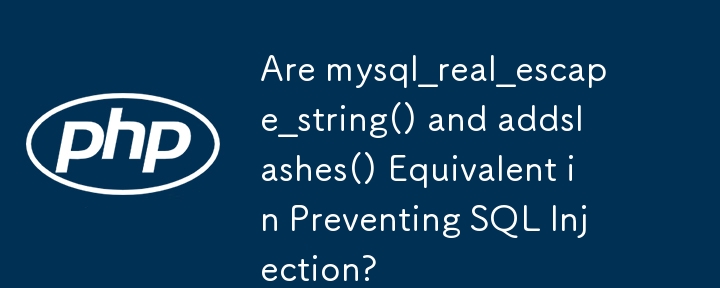

Understanding the Difference: mysql_real_escape_string() vs. addslashes()
While both mysql_real_escape_string() and addslashes() are used to escape special characters in strings to prevent SQL injection attacks, there are key differences between the two functions.
mysql_real_escape_string()
Specifically designed for MySQL database, this function adds slashes to the following characters:
addslashes()
On the other hand, addslashes() only adds slashes to three characters:
Security Implications
Web applications that rely solely on addslashes() for input validation may still be vulnerable to SQL injection attacks. This is because addslashes() does not protect against all characters that can be used in an injection attack, namely:
Recommendation
For optimal security, it is recommended to avoid using both mysql_real_escape_string() and addslashes() and instead use parameterized queries or prepared statements. These methods allow you to bind user input to the query without the need for manual escaping, which is more secure and efficient.
The above is the detailed content of Are mysql_real_escape_string() and addslashes() Equivalent in Preventing SQL Injection?. For more information, please follow other related articles on the PHP Chinese website!
 Compare the similarities and differences between two columns of data in excel
Compare the similarities and differences between two columns of data in excel
 Win10 My Computer Icon Retrieval Tutorial
Win10 My Computer Icon Retrieval Tutorial
 sort sorting function usage
sort sorting function usage
 How to install printer driver in linux
How to install printer driver in linux
 How to unlock android permission restrictions
How to unlock android permission restrictions
 excel duplicate item filter color
excel duplicate item filter color
 what is optimization
what is optimization
 How to repair sql database
How to repair sql database
 How to use append in python
How to use append in python




